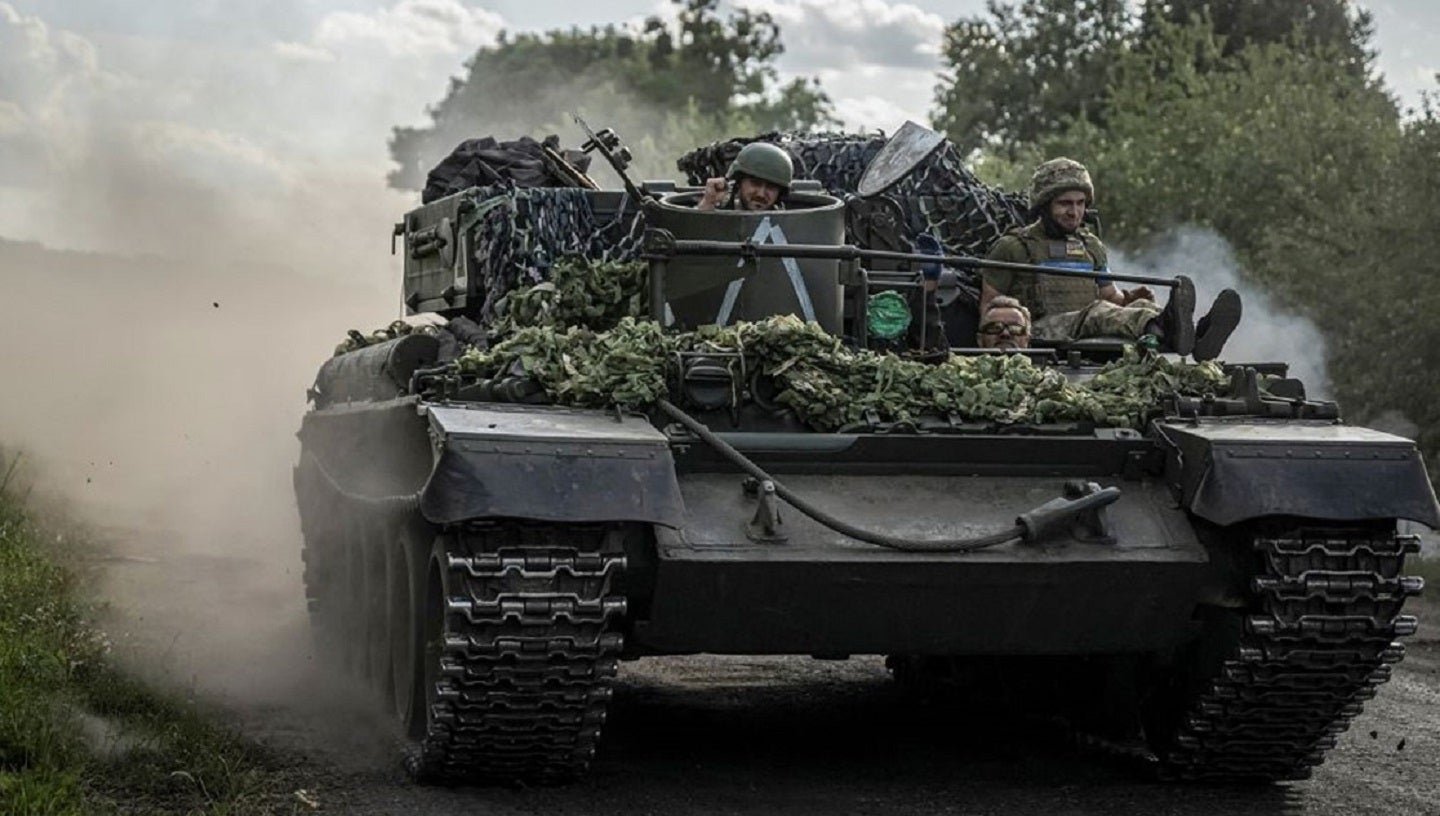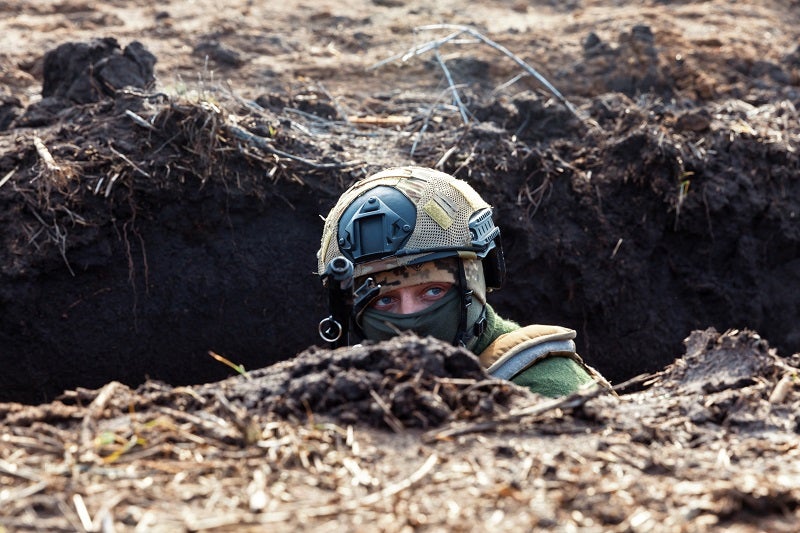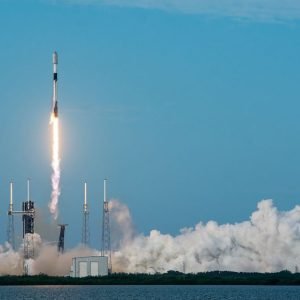
Ukraine’s forces have surprised us all with its recent incursion into Russia’s Kursk Oblast since the operation to turn the tide of the war, after several demoralising months on the defensive, began in earnest on 6 August 2024.
So far Ukrainian units have penetrated as deep as 30 kilometres (nearly 20 miles) in some directions, encompassing up to 400 square kilometres – though, control of the territory is questionable at this time. In their path, Ukraine’s forces – comprising four brigades, possibly more – have encompassed several villages and most of the town of Sudzha, where there is a gas transit point.
The latest to come out of events in the region indicates that Russia is responding, but not considerably, as the fate of the operation continues to hang in the balance.
Matthew Savill, the Military Sciences director at the British security think tank, the Royal United Services Institute, tells us that “over the weekend it seems like more Russian forces, including some pulled from inside Ukraine, have started arriving and may have now halted further Ukrainian advances, but it has not been a particularly impressive response yet.”
“The Russians have been severely embarrassed”
Of course, the foray has had a deep-seated psychological impact on Russian President Vladimir Putin’s autocracy, but whether this is the end in itself – or whether it is designed with more in mind – remains an unanswered question as military observers continue to gasp with uncertainty over the objectives of Ukraine’s high command.
“The Russians have been severely embarrassed and the loss of territory and evacuation of civilians will play poorly back in Russia as evidence they ‘can’t defend themselves’ (especially alongside continued Ukrainian drone attacks as deep strikes).”
Access the most comprehensive Company Profiles
on the market, powered by GlobalData. Save hours of research. Gain competitive edge.

Company Profile – free
sample
Your download email will arrive shortly
We are confident about the
unique
quality of our Company Profiles. However, we want you to make the most
beneficial
decision for your business, so we offer a free sample that you can download by
submitting the below form
By GlobalData

It is believed that as many as 75,000 Russian civilians have fled the region in the wake of the surprise raid. While giving no hint to either the size or strategy of its military response, comments from within the Russian Ministry of Defence only refer to its claims to “support the residents” with temporary accommodation as well as payments to those who had to leave their homes.
Some reporting over the weekend highlighted effective use of electronic warfare (EW) to break through or jam Russian surveillance, though it should be noted that the details are yet to be confirmed.
Andriy Dovbenko, principal and founder of UK-Ukraine TechExchange – a non-profit start-up support programme specialising in defence and agricultural technology – offered his insight:
“Ukraine’s incursion is a testament to the nation’s resilience and military strength. It was enabled by the country’s innovation in the use of EW and drones. This latest Ukrainian offensive shows that our fighting spirit is alive and well, as are the necessary technological advancements that will help bring us one step closer to ending this war.”
Ukraine’s land grab adds to mounting strife inside Russia following the rebellion of the state-backed mercenary group, Wagner, in July 2023, in which the group’s late leader, Yevgeny Prigozhin, led units in a march on Moscow. This was quickly stopped in its tracks by careful diplomacy involving mediation from Russia’s neighbour and satellite, Belarus.
GlobalData Defence Analyst, Fox Walker, argued that “Ukraine wants these civilians to become enraged with Putin’s decision to invade Ukraine; they hope these citizens will say that Putin’s decision-making upended their lives and put hundreds of thousands of Russians in danger – not to mention the hundreds of thousands of Russians who have already been killed in battle.”
In the end, Walker added, “part of Ukrainian strategy is to exploit a great weakness of autocracy.”
Military value
It is still difficult to know what Ukraine’s military objectives are in the context of the war itself. However, it is certain that this incursion is unsustainable. It will prove to be a major logistical challenge to control this Russian territory.
Nontheless, this reality does not diminish the fact that, with a goal in mind, Ukraine may be able to extort the Putin regime in the near-term.
“Sustaining a force of any size in Russia, and defending against counter-attacks, will be hard, given the limited reserves available to Ukraine,” noted Savill.
“Neither has it – thus far – resulted in the Russians slowing their advances around the Donbas [in Eastern Ukraine], where the situations around Chasiv Yar and towards Povrovsk remain difficult.”

On the other hand, it is telling that Russia – which is slowly pushing westward in the Ukrianian theatre largely due to sheer mass – is not mobilising a considerable enough force to meet enemy presence in its territory.
Walker adds that “this incursion is not going to be easily or quickly repelled by Russia either. Ukraine has likely been thinking about this scenario for a long time and hopefully has a plan to maintain this momentum. Meanwhile, Russia is forced to respond to this incursion and will have to relocate troops to handle the situation.”
Political value
There is added value politically too as Ukraine proves its ability to find alternate ways to break the slow and unrelenting Russian advances in Eastern Ukraine.
Over the last year-and-a-half, what was once a deadlock soon turned against Ukraine, which shook Western resolve in backing the receding nation.
It is noteworthy that the Ukrainians achieved something close to surprise in contrast with their counter-offensive last year, which was compromised both by leaks amongst international partners and Russian intelligence penetration of the Ukrainian system.
No doubt Ukraine hopes that the incursion will reverberate in the US, ahead of the 5 November election, as the former President Donald Trump runs again on a rampantly isolationist platform, and whose comments on European defence have recently reinforced this position.
“While the Ukrainians have reversed the public narrative about being on the defensive, it seems unlikely they would want to sustain a large incursion for months,” Savill adds. “They will have a decision to make about the best time to trade in the ground they have captured, and to what end.”








